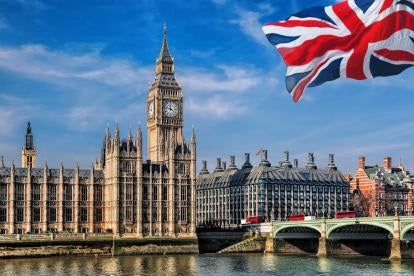The UK government’s Anti-Corruption Newsletter for Summer 2019, supported by ‘Anti-Corruption Champion’ John Penrose, MP for Weston-super-Mare, covers the latest developments in anti-corruption over the last quarter.
Two reported highlights illustrate the government’s steadfast approach to issuing new statutory guidance for both large corporates and small UK businesses. However, the latter category could receive subsidised anti-bribery advice through the ‘Business Integrity Initiative’ to ‘help’ improve compliance.
But is the Business Integrity Initiative really a proverbial olive branch?
The Newsletter – Item 5 – ‘House of Lords Response’
In Q2 2019, the government published a response to the House of Lords Select Committee on the Bribery Act 2010.
The Select Committee report was published in March 2019 and made a number of recommendations arising out of its many evidence sessions over 12 months (see GT Alert by Shareholder Anne-Marie Ottaway, who served as specialist advisor to the committee).
While recognising the committee’s conclusion that the Bribery Act is ‘an exemplary piece of legislation’, the government at the same time rejected a key recommendation made in the committee’s report.
Most notably, the government disagreed that the Bribery Act’s guidance should be expanded to provide greater assistance to the business community, particularly small or medium-sized enterprises (SMEs), as to what procedures are likely to be considered ‘adequate’ for the purposes of the statutory defence in Section 9.
The government response states:
…the guidance was only ever intended to provide general procedural guidance. It was deliberately not prescriptive but is certainly not a one-size-fits-all document. It is rather an outline guide as to how businesses should go about the task of determining what is required for them in a way of bribery prevention procedures.
It continues:
the Government does not consider that it is best placed to provide and neither would it be right for government or the prosecution agencies to give more examples or to suggest procedures that would be likely to provide a good defence. Companies should consult qualified legal and compliance professionals…or in the case of SMEs seek the support provided by trade bodies…
The response confirms that the government will seek to explore further opportunities for improving SME awareness of the current guidance.
On the other hand, the government welcomed a further Select Committee recommendation to offer support to UK exporters, and referred to the pilot Business Integrity Initiative, which offers subsidised anti-bribery advice to UK exporters. The initiative, which has received little publicity so far, is also highlighted in the anti-corruption newsletter.
The Newsletter – Item 6 – ‘Business Integrity Initiative’
Despite this lack of publicity, this initiative appears, at first blush at least, to be a potentially valuable resource for SMEs that want to expand their businesses into certain high-risk areas of the globe, i.e., emerging markets that carry risks of bribery, corruption, and human rights issues, according to the UK government.
How does it work?
The newsletter links to an information page on the great.gov.uk website – the main site for the UK’s ‘Exporting is GREAT’ campaign supported by the Department for International Trade. Through the site, users can access various guidance documents and information all brought together with the aim of promoting British business overseas.
The Business Integrity Consultancy Service, says the information page, ‘provides access to consultancy at a reduced fee’ and offers ‘up to five days of consultancy for first-time users, which can be spread over two months’.
Eligible companies may apply for the anti-corruption consultancy, provided by the Basel Institute on Governance, and can ask for guidance on a number of issues including:
- Understanding the requirements and consequences of the UK Bribery Act;
- Country-specific guidance;
- Corruption risks in specific sectors or regions; and
- Policies, systems, and procedures to prevent bribery.
Eligibility and Cost
To be eligible, a company must employ no more than 250 people and have a turnover of no more than £44 million.
Companies will be expected to pay a percentage of the cost of the service, calculated by reference to the size of the company, with ‘small’ companies expected to pay 20% and ‘medium’ sized companies expected to pay 40% of the cost.
Figures collected by the Office for National Statistics, published in November 2018, show that in 2017 the number of SMEs that exported overseas rose; however, the 232,000 that do so still only account for 9.8% of all SMEs in the UK in 2017.
Those businesses, and those considering expansion into emerging markets, must be acutely aware of the risks involved and have in place appropriate measures to combat those risks. Failure to do so could result in them falling foul of wide-ranging extra-territorial legislation such as the UK Bribery Act and the U.S. Foreign Corrupt Practices Act.
Unlike multinational corporate giants, which usually have plenty of cash reserves should they find themselves the wrong side of the law, any infringement by an SME is likely to be fatal to the business.
Solution or Complication?
The Basel Institute on Governance suggests that the service could include training on the relevant legislation, improvement and updating of risk assessments, and due diligence policies and country-specific workshops.
While these services would be helpful to a small business, the application form for the service suggests that applicant companies may only choose one specific area in which they need guidance, potentially leaving them to wonder what they should do next.
In addition, the service also requires the company to agree to certain terms and conditions, including:
- To undergo a basic due diligence assessment within 10 working days of the application being received by the Business Integrity Hub.
- To report any evidence or allegations of bribery and corruption to the National Crime Agency (NCA) and the Serious Fraud Office (SFO).
There is no available guidance on how these conditions will work in practice.
It is not clear, for example, who carries out the due diligence assessment and what is involved. What is clear is that the assessment will not be covered by the legal privilege usually applied to such work when carried out by the company’s own lawyer.
The reporting obligation raises obvious issues and goes beyond obligations that would already apply to corporates who have discovered and are investigating a potentially criminal issue.
Key considerations for companies entering new markets
1. Third-Party Due Diligence
History tells that the biggest risk for any corporation comes not from its own employees but instead from third parties, including agents, joint venture partners, and others. Frequently it is not the corporation and its employees but others who can create significant legal liabilities and trigger government investigations, embroiling the corporations using them at huge expense and for many years.
Companies should consider third-party screening programs for new and existing third-party partners – these can help reduce risk and create an audit trail of an effective program.
2. Policies and procedures endorsed and implemented by those at the top
Guidance and commentary attached to key legislation are clear that companies are expected to have in place a visible policy prohibiting violations of key statutes and regulations. This area is a dynamic one, and companies should revisit existing policies periodically to ensure they are up to date and fit for purpose. Likewise, law enforcement expect that compliance programs will develop and evolve over time.
3. Risk Assessments
As corporations grow into new regions and industries, identifying risk and adapting to your own risk profile becomes more and more challenging, but robust and adaptable risk assessments are crucial.
4. Identifying, reporting and investigating any issues
Where issues arise, systems should be in place to ensure that employees are able to communicate with an appropriate person. Further, the company should have a clear system on how such reports are responded to in order to ascertain the facts, prevent further wrongdoing, and implement any systemic changes that are required.
5. Training
While having policies and procedures to address all of the above issues is vital, ensuring that all employees and officers are aware of and trained on them is of equal importance.
Conclusion
Given the complex issues raised by the Business Integrity Initiative, a lack of guidance and recent enforcement history, the initiative is unlikely to offer a workable solution for companies with overseas ambitions.
Nevertheless, all companies, particularly the many SMEs in the UK, should seek legal guidance if they are proposing to expand into high-risk areas of the world.




 i
i


